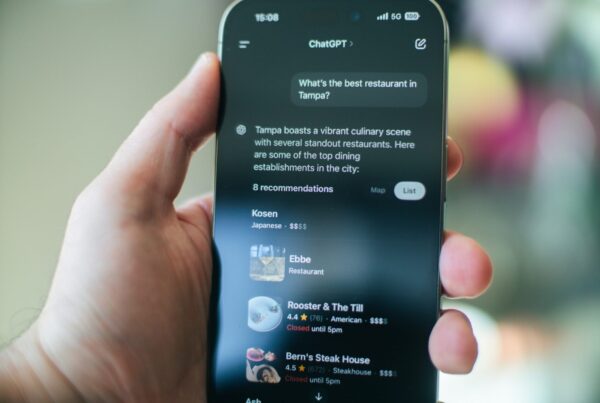In B2B marketing, results matter—but only if you know how to measure them.
If your B2B digital marketing agency isn’t delivering transparent, performance-focused reports, you may be flying blind. Whether you’re evaluating an existing partnership or building your own internal reporting process, knowing the right metrics to track is essential for driving ROI and proving marketing impact.
Let’s break down the most important KPIs a B2B digital marketing agency should report on—plus why they matter.
1. Marketing Qualified Leads (MQLs)
Why it matters: Not all leads are created equal. MQLs are prospects who have shown genuine interest and are more likely to become customers.
What to look for:
- Volume of MQLs per campaign
- Cost per MQL
- Lead source (e.g., paid ads, SEO, content)
A strong B2B digital marketing agency will track MQLs closely and work with sales to define qualification criteria.
2. Sales Qualified Leads (SQLs)
Why it matters: SQLs have been vetted by sales and are considered ready for direct engagement. This is where marketing and sales alignment becomes critical.
What to look for:
- MQL-to-SQL conversion rate
- Lead velocity (how fast leads move through the funnel)
- Campaigns driving high-quality SQLs
3. Cost Per Lead (CPL)
Why it matters: It’s not just about volume—it’s about cost-efficiency. Tracking CPL helps determine whether your marketing budget is being spent wisely.
What to look for:
- CPL by channel (e.g., paid search vs. organic)
- CPL trends over time
- Benchmarks vs. industry averages
A results-driven B2B digital marketing agency will optimize campaigns continuously to bring CPL down without sacrificing quality.
4. Pipeline Value and ROI
Why it matters: The end goal is revenue. Reporting should connect leads and conversions to pipeline and closed-won deals.
What to look for:
- Total influenced pipeline from marketing
- ROI per campaign
- Customer acquisition cost (CAC) vs. lifetime value (LTV)
This is a key area where marketing attribution comes into play—and your agency should help build that visibility.
5. Website Engagement Metrics
Why it matters: Your website is the hub of your digital strategy. If traffic is high but engagement is low, something’s off.
What to look for:
- Conversion rate (form fills, demo requests, downloads)
- Bounce rate and time on site
- Top-performing landing pages
A strategic B2B digital marketing agency should report on user behavior and provide clear recommendations to improve it.
6. SEO & Organic Growth KPIs
Why it matters: Organic traffic is often the most sustainable and cost-effective source of leads.
What to look for:
- Organic traffic growth
- Keyword rankings (especially for high-intent B2B terms)
- Backlink profile and domain authority
- Blog/content performance
Agencies should provide monthly SEO performance reports and clear keyword strategy insights.
7. Email & Nurture Campaign Metrics
Why it matters: B2B sales cycles are long. Email keeps leads engaged and moving through the funnel.
What to look for:
- Open rate and click-through rate (CTR)
- Email conversion rate
- Unsubscribe rate and deliverability
If your B2B digital marketing agency handles lead nurturing, they should be reporting on engagement and journey impact.
8. Paid Media Performance
Why it matters: PPC and paid social often drive immediate results—but need close monitoring to stay efficient.
What to look for:
- CTR, CPC, and conversion rate by platform
- Ad creative performance
- Retargeting success
Look for proactive insights, not just raw numbers—your agency should offer optimization suggestions, too.
Case Study: HubSpot and Salesforce’s Strategic Partnership Enhances B2B Marketing and Sales Alignment
In 2023, two industry leaders in sales and marketing technology, HubSpot and Salesforce, deepened their partnership to tackle one of the biggest challenges B2B organizations face: bridging the gap between marketing and sales teams to drive revenue more effectively.
Seamless Data Integration to Align Teams
Historically, marketing and sales teams often operated in silos, with fragmented data and disconnected processes leading to missed opportunities and inefficient workflows. HubSpot and Salesforce addressed this by enhancing their integration capabilities, allowing for real-time syncing of marketing-qualified leads (MQLs) and sales-qualified leads (SQLs) between platforms.
This meant that marketing teams could more accurately identify leads who showed genuine buying intent and quickly pass them to sales with comprehensive contextual data—contact activity, engagement history, lead scoring, and more—helping sales reps prioritize efforts.
Impact on Lead Quality and Conversion
A recent report from Forrester highlighted the tangible benefits of this integrated approach:
- Up to 30% increase in lead-to-opportunity conversion rates, reflecting higher quality leads and better sales follow-up.
- 20% faster sales cycles, as sales teams spend less time chasing unqualified leads and more time closing deals.
- Enhanced pipeline visibility with synchronized dashboards, allowing leadership to track performance metrics across the funnel more effectively.
Pipeline Velocity and Revenue Growth
Beyond conversion metrics, organizations leveraging HubSpot-Salesforce integration reported:
- Improved pipeline velocity with clearer lead handoff processes reducing friction and delays.
- Better forecast accuracy due to consistent data flows and aligned KPIs between marketing and sales.
- A more focused revenue strategy, with both teams collaboratively targeting high-value accounts and optimizing campaigns based on feedback loops.
How This Partnership Benefits Businesses
- Marketing teams gain actionable insights into which campaigns are driving qualified leads that convert, enabling smarter budget allocation and messaging refinement.
- Sales teams receive richer lead intelligence, allowing for personalized outreach and higher win rates.
- Executives benefit from unified reporting that bridges marketing activity with revenue outcomes, supporting data-driven decisions.
Why This Matters in 2025
As B2B buying journeys grow increasingly complex, the ability to unify marketing and sales through technology is critical. The HubSpot and Salesforce enhanced integration sets a benchmark for how data-driven collaboration accelerates growth and maximizes return on investment.
Final Thoughts: Reporting That Drives Strategy
Great reporting isn’t just about checking boxes—it’s about revealing what’s working, what’s not, and where to go next.
A high-performing B2B digital marketing agency should offer more than surface-level metrics. They should act as a strategic partner, delivering insights that tie back to your business goals and revenue.
If you’re not getting clear, actionable reporting from your current agency, it may be time to re-evaluate. Because in B2B marketing, performance isn’t optional—it’s everything.
Where Strategy Meets Measurable Results
At Brandastic, we don’t just report numbers—we connect the dots between data and growth. As a performance-driven B2B digital marketing agency, we focus on the metrics that matter: qualified leads, pipeline value, and real ROI. From strategy to execution, our team delivers clear, actionable insights that move your business forward. Ready to ignite your brand’s potential? Schedule your free consultation.













